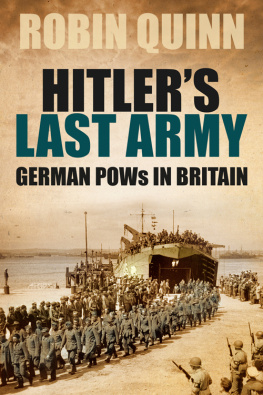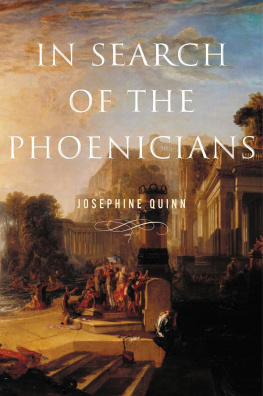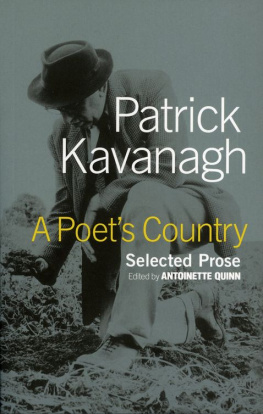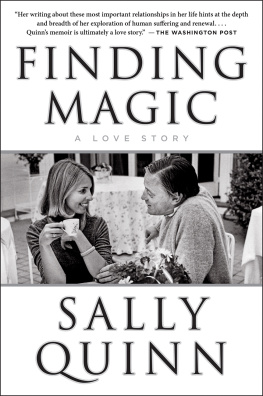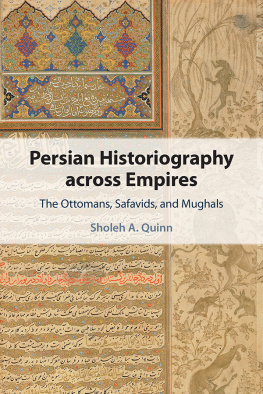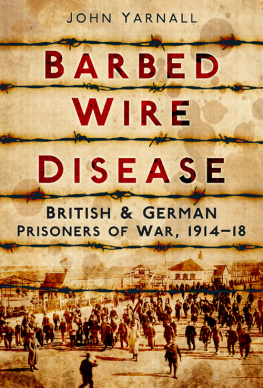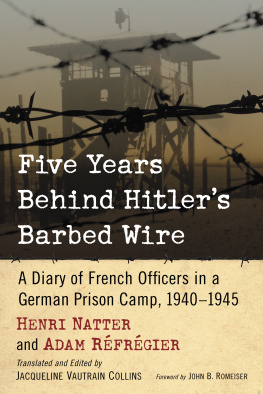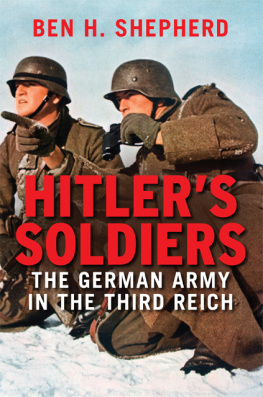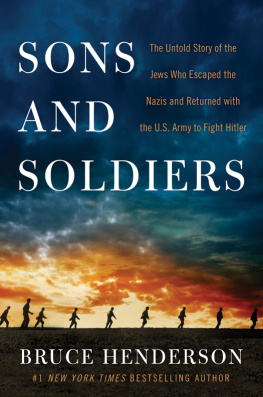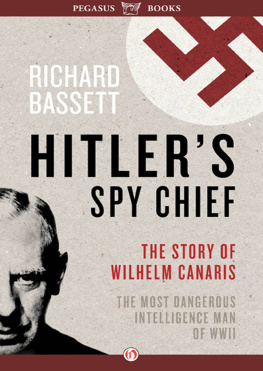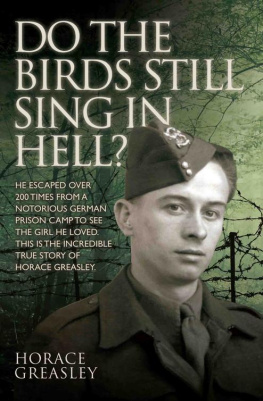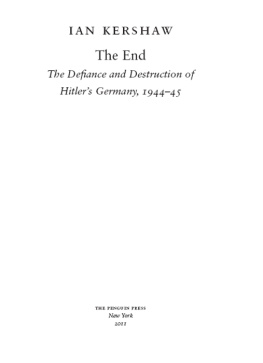
For my grandson, Louis
I was sure from the very beginning that this book had to be based on the first-hand testimony of the former prisoners of war themselves. Im therefore grateful to those who kindly allowed me to interview them often at some considerable length. They have not only provided the information which forms the backbone of this book, but have also extended their hospitality, friendship and encouragement to me over the last two years. So I must begin by thanking them, together with their spouses and partners, as follows: Karl-Heinz Decker and Dorothy Masterman; Theo Dengel and his late wife, Joan; Bruno Liebich; Peter Roth; Werner and Iris Vlkner; and Eberhard and Kathleen Wendler. I feel honoured to have met them all and to have been allowed to share their memories.
The following individuals have provided me with indispensable information, help and advice: John Andrews; Raymond Blackman; Arno Christiansen; Keith Ennis; Phil Fairclough; John Glanfield; Harry Grenville; Ingeborg Hellen; Mark Hickman; Mary Ingham; David Martin; Andrew Mitchell; Peter Osborne; Veronica Parker; Winston G. Ramsey; Maureen Small; Anne Smith; Sven Urbanski; Peter Venner; Malcolm Whitaker.
I am deeply indebted to the writers whose works I have consulted: the background information in their books has provided a solid foundation for this present volume.
Special thanks go to Stephen Walton (Senior Curator, Documents and Sound Section, The Imperial War Museum), whose help has been above and beyond the call of duty; likewise the kind assistance provided by his colleagues at the IWMs London Research Room. I am also grateful to the courteous and ever-resourceful staff at the British Library; the London Metropolitan Archives; the National Archives and the former Newspaper Library at Colindale; and to those at the many local libraries and archives I have contacted around the country.
Mark Beynon, my editor at The History Press, has been attentive and helpful throughout the whole process; I have had no hesitation in entrusting this work to him and his team of colleagues to work their magic on it before it finally makes its public debut.
Last but not least, a very big thank you to Jacqui, without whose love and support I could not even have considered embarking on this project.
Contents
As the hop-pickers clambered into the back of the lorry none of them imagined that within minutes they would be fighting for their lives.
Every year the same families came down from London to the Sussex village of Bodiam for a working holiday, a good get-together, a breath of fresh air, and the chance to earn some welcome cash. It was mainly the women and children who went hopping: the men of the family could seldom get time off from their regular jobs, and only visited at weekends, if at all. During the war a hop-picking holiday had been especially prized as a respite from the bombing, a couple of weeks away from it all. But this was September 1947 more than two years since VE Day and people were slowly adapting to peacetime.
With thirty people on board, the lorry was hopelessly overloaded. Yet none of the passengers seem to have given a second thought to the short journey ahead. It was, after all, only a ten-minute ride and theyd soon be back in camp after a glorious summers day in the sunshine. Some of the older women used to bring wooden chairs from home, and sat on them whenever they took a quick break from hop-picking. Now they put the chairs in the back of the truck and perched on them in relative comfort while the younger ones sat on the floor, all squashed together, wherever they could find a space.
From year to year the routine seldom varied, peacetime, wartime, rain or shine. There were about twenty in our group who went together with a family called the Moneys, says Maureen Blackman, who was just 7 years old at the time. We all shared two wooden huts, numbers 51 and 52 every year the same ones.
George Middleton started the engine and drove off. Everyone knew George would take it nice and steady his wife and their two young children were in the lorry. Minutes later they reached Bodiam village and approached the humpbacked bridge across the river. Back in 1940 a pillbox with a two-pounder gun had been installed close by to defend against the feared German invasion. Then the Home Guard found that the solid brick-built parapets on either side of the bridge blocked their line of fire: workmen had been sent to remove the masonry and some flimsy, makeshift railings were put in its place. And since the war no one had quite got around to putting the bridge back as it once was.
The hop-pickers are uncertain what happened next. There were some indistinct recollections of a car coming the other way at speed, but from the back of the lorry most of them simply couldnt see.
One moment we were going along, all singing in the back, Raymond Blackman remembers, then suddenly we were in the water. The lorry had crashed through the railings, falling 10ft into the river and turning on to its side. The passengers were all thrown into a heap. For a few moments everyone was stunned, immobile, confused. Some were unconscious, a few seriously injured or gasping for air, trapped by the lorrys canvas cover.
Fifteen-year-old Donald Money had just left school and taken a job as a messenger with the Southern Railway. Hed recently taught himself to swim at the local pool. Freeing himself from the wreckage he spotted a small child whom he rescued from the water. But he knew he couldnt save the rest of them, not on his own: instead he ran 200 yards to a small encampment of tents in a field by the river. He had passed this way many times before and remembered seeing the soldiers there. When he arrived, the camp was almost empty, but he found four men preparing dinner for their comrades.
Out of breath, Donald tried to explain to the cooks what had happened. There was something of a language barrier, for these were not British soldiers.
They were German prisoners of war.
Somehow Donald made them understand. One of the men seized a sharp cooking knife and they all rushed back to the scene of the accident. The Germans dived into the river and started to rescue the crash victims. One slashed the canvas cover at the rear of the truck with the knife he had brought from the camp, freeing those trapped inside.
They were brilliant, says Raymond Blackman. They pulled us out and wrapped us in blankets. If it hadnt been for them, people would definitely have died.
Though several people were hurt, all seemed to be accounted for, at first. One of the injured was Ellen Blackman mother of Maureen and Raymond who had sustained a broken arm and a terrible gash to the head. When she looked around, she realised that Maureen was missing. According to her son, the late Terry Blackman, Ellen was a powerful, stocky woman, very strong. But the news that Maureen was nowhere to be seen was too much even for her to bear, and she passed out.
All the others were found close to where the accident happened, recalls Maureen, but I was only 7 and small for my age. I was carried downstream, unconscious, and washed up against some reeds and rushes. One of the Germans must have realised what had happened: he immediately ran along the riverbank until he found Maureen, dived into the water and lifted her out. Despite her ordeal she was, incredibly, uninjured and soon regained consciousness.
An account of the accident found its way into most of the national newspapers: the Daily Herald quoted a witness who summed up the incident in four words, The prisoners were wonderful.
My Dad bought the German prisoner a silver lighter to say thank-you, but a big regret was that we never got his name, says Maureen. I would have loved to have tracked him down to let him know how grateful I was that he saved my life. But it seems that the Germans were never publicly named.
Next page
